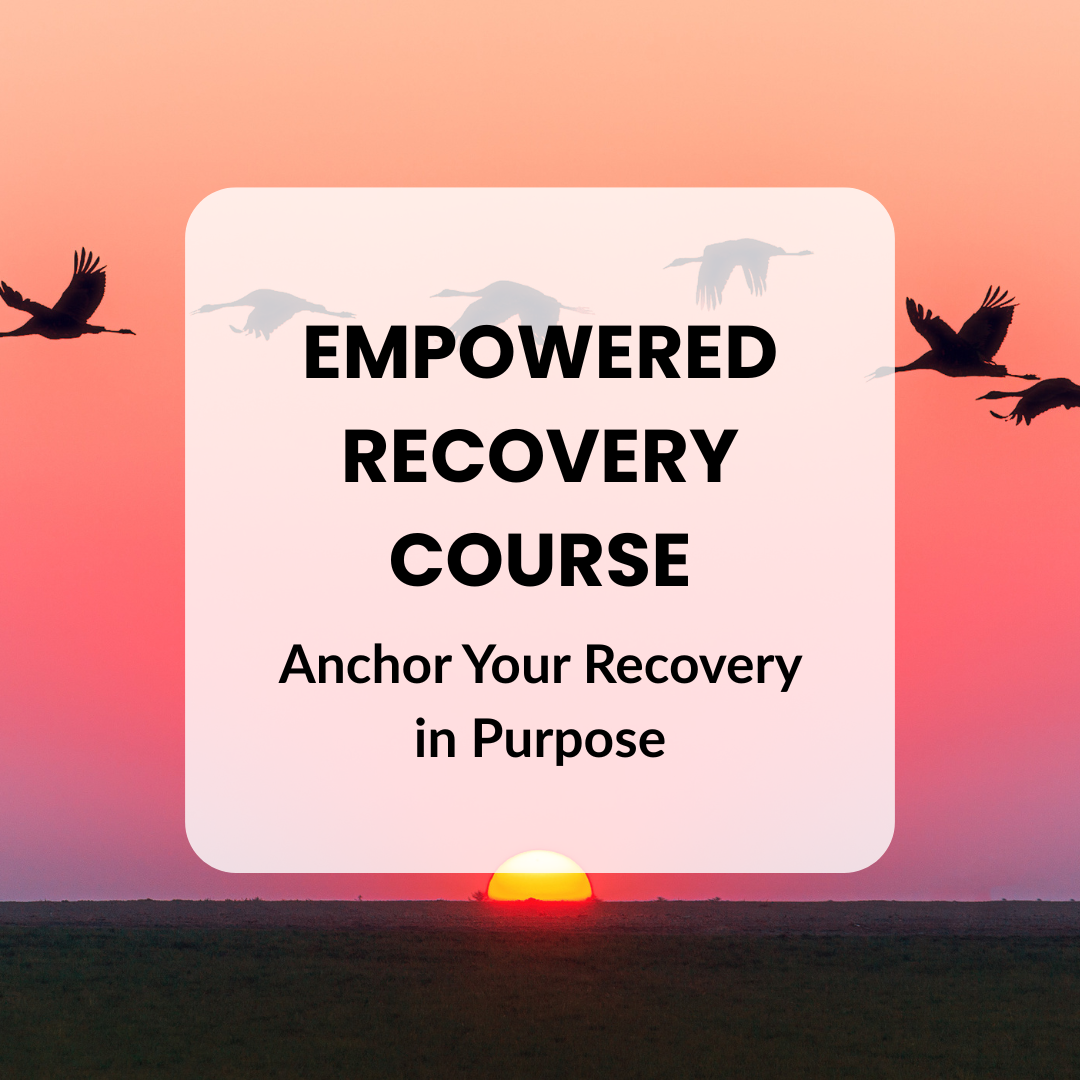Values-Based Recovery: Anchoring to Your Why
When someone begins the recovery journey, one of the first questions they often hear is, “What’s your why?” It’s more than a motivational slogan. It’s an invitation to rediscover the values that make life meaningful.
Values are our compass. They guide choices, shape relationships, and give us direction when life feels uncertain. But in the chaos of addiction, people-pleasing, and survival mode, values often get buried. Recovery is not only about abstaining from substances or numbing behaviors — it’s about realigning with your values and anchoring your life to what matters most.
What Are Values?
Values are not goals you check off a list. They are enduring principles or qualities like honesty, health, family, service, spirituality, or freedom. They point us toward the life we want to live.
Psychologist Albert Bandura’s Social Learning Theory (1977) shows that values are often learned early through modeling — we pick them up from parents, caregivers, teachers, and peers. Family rituals, cultural expectations, and role models all play a role in shaping what we believe matters.
For example, a child who grows up in a home where family dinners are sacred may internalize connection and presence as core values. Another child who watches their parent work tirelessly may learn that hard work and independence are non-negotiable.
How Values Get Lost
The challenge is that life often pulls us away from those core values. Addiction is one of the clearest examples.
Imagine a parent whose deepest values are family and honesty. Over time, their drinking escalates. They start lying to their spouse — “I only had one.” They miss their child’s soccer game because they were too hungover. Each compromise chips away at their integrity, and the shame of violating those values drives them deeper into the cycle of disconnection.
This isn’t just anecdotal. Research on addiction and shame shows that substance use often creates a cycle of value violation and guilt, which fuels more use (Miller & C’de Baca, 2001). The more disconnected someone feels from their values, the harder it is to remember who they really are.
Are You Living in Alignment With Your Values?
Values-based recovery goes beyond abstinence to help individuals build a life rooted in clarity, purpose, and resilience. By identifying core values and aligning daily choices with them, recovery becomes more than avoiding harmful behaviors—it becomes a path of empowerment, self-awareness, and lasting transformation.
The Neuroscience of Choice
Here’s the hopeful part: values don’t disappear. They can be uncovered — and living by them literally strengthens the brain.
The prefrontal cortex, the brain’s executive control center, is responsible for decision-making, self-regulation, and long-term planning. When people reflect on their personal values, studies show increased activation in these self-control networks (Harris et al., 2009). This makes it easier to override the brain’s reward system, which craves immediate relief and dopamine hits.
In other words: when you’re clear on your values, you give your brain leverage. Each time you choose in alignment with your values, you strengthen the neural pathways that support resilience, stability, and empowered decision-making.
Rediscovering Your Values
But how do you know what your values are — especially if you’ve lost touch with them? Here are some practical ways to rediscover them:
Reflect on times you felt proud. What value were you honoring?
Think about moments of regret. Which value did you compromise?
Consider people you admire. What values do they represent that resonate with you?
For practitioners, values card-sort exercises are an excellent tool. Clients are invited to rank potential values like honesty, health, service, and creativity, then discuss what those values mean in practice. In the Empowered Recovery Curriculum, these exercises are paired with group discussions that help clients explore what living in alignment looks like day-to-day.
A Guided Visualization
If you want to take this deeper right now, try this short reflection.
Imagine waking up tomorrow fully in alignment with your top three values. How would your morning begin? How would you show up in your relationships during the day? How would you make decisions in your work or recovery? And how would you wind down at night?
Notice how your body feels as you imagine this life. Does it bring relief, hope, or energy? This practice isn’t just a mental exercise — it’s planting seeds in your brain for a new way of living.
What’s Driving Your Recovery?
The Breaking Free Challenge is designed to help you uncover the deeper reasons behind your choices and anchor yourself to what truly matters. When recovery is guided by values, it transforms from a struggle of willpower into a journey of empowerment, clarity, and lasting freedom.
For Practitioners and Treatment Centers
For those working in recovery programs, integrating values into treatment helps shift the narrative from “What’s wrong with me?” to “What do I stand for?” This reframing reduces shame and increases motivation.
The Empowered Recovery Curriculum provides treatment centers and outpatient programs with structured worksheets, facilitator guides, and group scripts that make values work accessible and transformative. When clients anchor their recovery in values like health, honesty, and family, sobriety becomes less about avoidance and more about purpose.
Anchoring to Your Why
Recovery is not about perfection. It’s about direction. Your values are the compass that help you return to yourself when life pulls you off track.
Every time you make a choice that reflects your values — whether it’s showing up honestly, prioritizing your health, or being present with loved ones — you’re not just doing the right thing. You’re rewiring your brain, rebuilding your identity, and reclaiming your “why.”
No matter how far you’ve drifted, your values are waiting for you. And when you anchor to them, you stop drifting and start moving toward a life that feels authentic, empowered, and free.
Make it stand out
Whatever it is, the way you tell your story online can make all the difference.
References
Bandura, A. (1977). Social Learning Theory. Prentice Hall.
Miller, W. R., & C’de Baca, J. (2001). Quantum Change: When Epiphanies and Sudden Insights Transform Ordinary Lives. Guilford Press.
Harris, A., Kaplan, J., Curiel, J., Bookheimer, S., & Iacoboni, M. (2009). Self-related processing in the brain: A meta-analysis of functional neuroimaging studies. Journal of Cognitive Neuroscience, 21(5), 799–816.
Volkow, N.D., & Morales, M. (2015). The Brain on Drugs: From Reward to Addiction. Cell, 162(4), 712–725.
👉 For individuals: explore your “why” with the 21-Day Breaking Free Challenge, reset your health with the 28-Day Clean Body Reboot, or sustain transformation through the Empowered Recovery Course.
👉 For practitioners and treatment centers: the Empowered Recovery Curriculum equips your team with evidence-based, values-centered tools to support client transformation.




